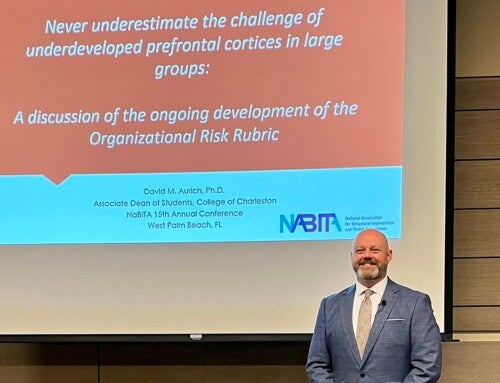From fake coronavirus vaccinations to bogus charities, new scams pop up every day, defrauding millions of people each year. Cybercrooks often use new technology to get people to send money or personal information using the same old tricks. And working and learning remotely only makes us more susceptible as we spend more time sharing content online and using new and different platforms to communicate.
That’s why, at 2 p.m. on Tuesday, Oct. 27, 2020, the Division of Information Technology (IT) is celebrating Cybersecurity Awareness Month (October) with an online Zoom discussion about how to stay safe while working and learning remotely. The link for the event is https://cofc.zoom.us/j/96154605216, and you will need to be signed into Zoom to join.
In the meantime, IT offers the following tips to keep you and your loved ones safe from scammers and other cybercrooks:
- Learn to spot imposters. Scammers often pose as someone you trust, like a government office, company you do business with or charity. Scammers will ask you for payment, your bank or credit card account number or your Social Security number. Legitimate organizations won’t.
- Don’t trust caller ID. Crooks use technology to easily fake caller IDs, so it may not be who you think it is on the line. If you get a call asking for money or personal information, hang up. If you think the call might be legitimate, call back to a number that you know is real.
- Don’t pay up front for a promise. Don’t pay up front for things like debt relief, credit or loan offers, a job or a prize. If you do, they will probably take your money and run.
- Pay with credit cards. Credit cards have significant fraud protection built in, but some payment methods don’t. Money wires and gift cards (like iTunes or Google Play) are risky because it’s near impossible to get your money back. Scammers will ask you to pay this way. Legitimate companies won’t.
- Hang up on robocalls. If you answer a recorded sales pitch, hang up. These calls are often illegal, and the products often bogus. Don’t press 1 to speak to a person or to be taken off the list. That could lead to more calls. You can report robocalls and add your name to the Do Not Call registry with the FTC.
- Free trials aren’t always free. Before you agree to a free trial, research the company and read the cancellation policy. Review your monthly statements for charges you don’t recognize.
- Research before you donate. Do your homework on organizations before you donate. And never donate with cash, gift card or money wire.
For more information and tips, follow IT’s social media accounts (Twitter, Facebook, Instagram) and digital signage across campus; visit the Federal Trade Commission’s website for scam alerts or to report a scam; or contact one of the following people in IT with questions or comments: Chief Information Security Officer Jamey Rudisell, Chief Privacy Officer Sarina Russotto or Senior VP and Chief Information Officer Mark Staples.
Cybersecurity Awareness Month is co-led by the National Cyber Security Alliance (NCSA) and the Cybersecurity and Infrastructure Security Agency (CISA) of the U.S. Department of Homeland Security. For more information about ways to keep you and your family safe online visit https://staysafeonline.org/cybersecurity-awareness-month/ and/or cisa.gov/ncsam.




